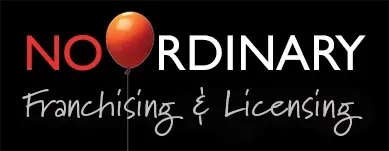When I first got into franchising 20 years ago, I believed that uniformity was essential to success. How naïve can you get?
“Uniformity in franchising has long been considered a crucial ingredient to success, but as the sector matures and our understanding of franchising grows, we can afford to take a more nuanced view.”
So says Dr Elizabeth Spencer, Associate Professor of Law at Bond University and one of my favourite thinkers on franchising.
Franchising is a relational contract
In her article ‘Making the Most of the Franchise Agreement’, Dr Spencer points out that franchising is a relational contract rather than a purely transactional one. That means it’s ongoing and relationship driven, not simply one-off or transaction-based. It also means that, like other relational contracts – marriage contracts, joint ventures and employment agreements are other examples – the franchise agreement must make provision for change and innovation during its term.
“Franchise agreements can borrow from all these other arrangements, and other complex business arrangements can borrow from franchising,” she says. “In fact, franchising is not only charting new territory in the business disciplines of management and marketing; it is revealing emerging paradigms in the law as well.”
Relational contracts are different
According to Dr Spencer, relational contracts are different from other types of contracts in two fundamental ways.
“First, they must be flexible enough to accommodate change,” she says. “Practitioners draft contracts to address issues as specifically as possible, but they cannot anticipate every contingency in a long-term business association. Many aspects of the franchise relationship change over time. Highly specific, rigid contractual terms are incompatible with the flexibility necessary to maintain the parties’ relationship over the duration of the agreement.
“Second, relational contracts must balance the needs of both sides in the relationship. If one side takes unfair advantage in the negotiation of the agreement, the resulting one-sided agreement can undermine the relationship permanently. While the side that takes advantage may believe it is making a better deal for itself, it’s not. If the relationship suffers in franchising, both sides suffer.”
But does that mean a franchise agreement can be negotiable? And how negotiable can it be before accusations of unfairness start being levelled at the franchisor?
Put your franchise agreement in the bottom drawer
Part of the answer lies in the way the agreement is written, but another part is the way it is put into place. I’ve found with best-practice franchisors that the agreement, once signed by both franchisee and franchisor, tends to be ‘put in the bottom drawer’ and the relationship between the franchisee and franchisor allowed to drive the business forward.
Dr Spencer puts the situation perfectly: “For the franchisor, a position of power shouldn’t necessarily translate to control. A franchisor who is willing to ease up on the reins a bit may find a better rapport with a franchisee that can maximise returns. Just as a skilful rider must give a good horse the latitude to perform at its best, a franchisor can get a better result by sometimes giving an enterprising franchisee greater latitude to exercise his or her own judgment and expertise.”
I'm Robin La Pere of No Ordinary Businesses and Franchises. One of the reasons my clients come to me rather than a lawyer to prepare their franchise agreements is because as a former franchise manager and then franchisor, I bring a real-world understanding of the needs of franchise relationships to the table. After all, a franchise is a relationship business. And I believe that to create a franchise agreement that works for both parties to the agreement, you need to take the perspective of one who has "been there, done that" when it comes to franchising. That's why I take a visionary as well as practical approach to designing agreements which optimise the franchise partnership.
Contact me
for a free Initial Consultation.
Relevant Articles
Subscribe to my newsletter
Every two weeks, I write an email newsletter designed for those in franchising and those considering getting into franchising. Topics include those you see in the articles listed above and are intended to be stimulating, helpful and challenging. These articles have helped me gain more than 100,000 followers on Twitter and worldwide connections on LinkedIn, but you can read them first by subscribing to the newsletter.
Subscribe by entering your email address here:



